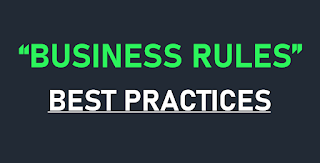ServiceNow is a powerful platform that allows organizations to automate and streamline their business processes. To ensure the success of your ServiceNow implementation, it's important to follow Business Rule best practices for creating and managing business rules.
Here are some best practices for business rules in ServiceNow:
1. Keep business rules simple and focused: Business rules should be easy to understand and focused on a single task. Complex rules can be difficult to troubleshoot and maintain.
2. Avoid using business rules for complex logic: ServiceNow offers other tools such as workflows, script includes, and client scripts to handle complex logic. It's best to use these tools for complex logic and keep business rules for simple tasks.
3. Use the before and after business rule types appropriately: Before business rules run before a record is saved, while after business rules run after a record is saved. It's important to use the appropriate rule type based on your business requirements. Knowing when to use business rules in servicenow.
4. Use conditions to narrow the scope of your business rules: Conditions allow you to limit the records that a business rule applies to. This can help prevent unnecessary processing and improve performance. In other words using the Condition field appropriately and using scripts in conditions
5. Prevent Recursive Business Rules. Do not use current.update() in a business rule script. The update() method triggers the business rule on the same table for insert and update operations. Potentially calling business rule again and again itself.
6. Keep Code in functions. When code is not enclosed in a function, variables and other objects are available to all other server-side scripts. This availability can lead to unexpected consequences that are difficult to troubleshoot.
7. Use logging to troubleshoot issues: ServiceNow provides logging capabilities that allow you to track the execution of business rules.
Use this information to troubleshoot issues and optimize performance.
8. Test your business rules thoroughly: It's important to thoroughly test your business rules before deploying them to production. This can help you catch issues early and prevent problems down the road.
9. Using script includes instead of global business rules.
10. Avoiding client-callable business rules.
By following these best practices, you can ensure that your business rules are effective, efficient, and easy to maintain in ServiceNow. Practice makes a doer perfect. Above business rule best practice will help you to write a performance oriented code. Please let us know your feedback and queries below.













No comments:
Thankyou !!!!